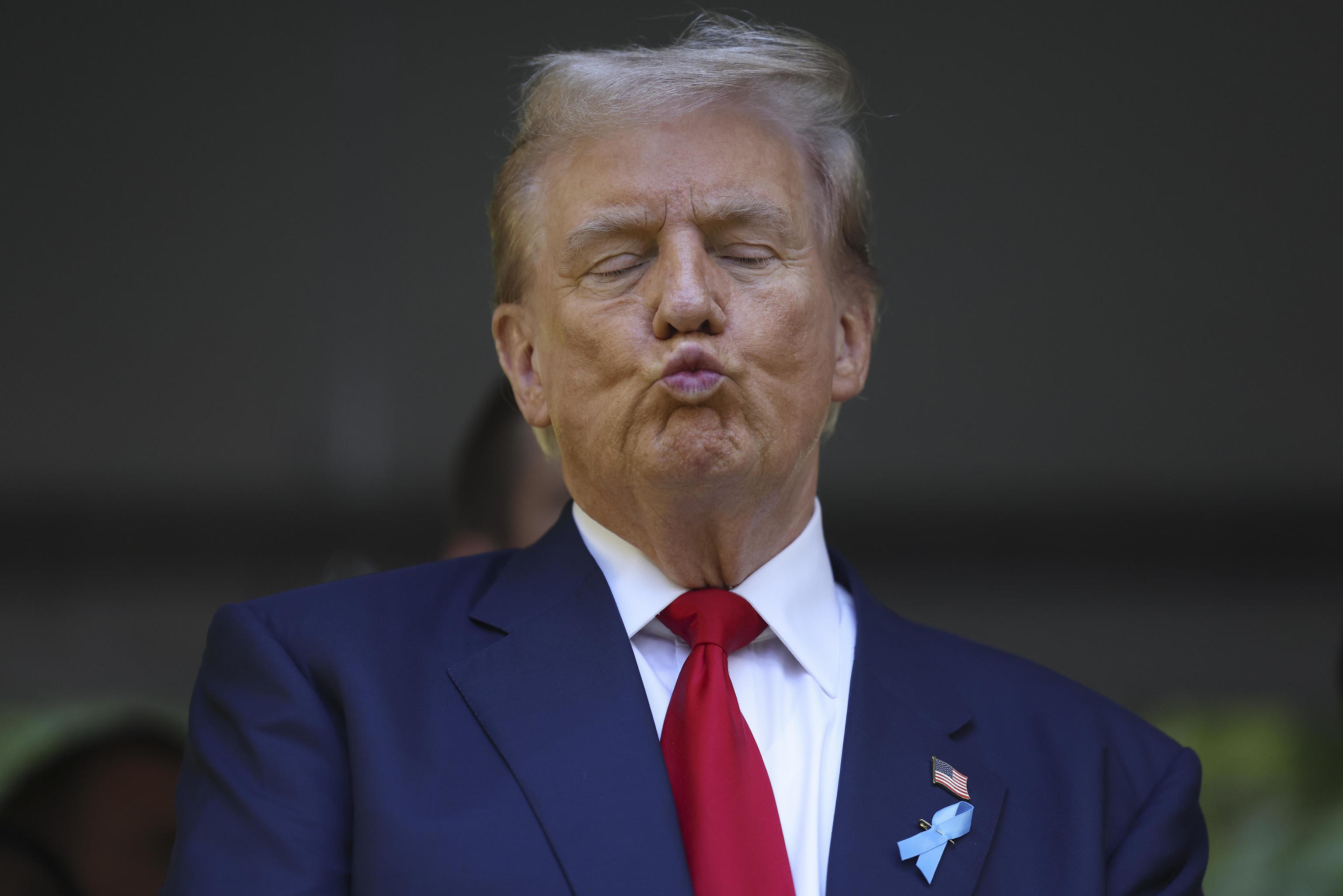Sept. 11 — the date when hijacked plane attacks killed nearly 3,000 people in 2001 — falls in the thick of the presidential election season every four years, and it comes at an especially pointed moment this time.
Fresh off their first-ever debate Tuesday night, Harris and Trump met again at the 9/11 observances at the World Trade Center in New York and the Flight 93 National Memorial in Pennsylvania.
Trump and running mate Sen. JD Vance arrived at the trade center site around 8 a.m. and posed for photographs with some in the audience. Harris arrived with Biden about a half-hour later, to cheers of "Kamala!" from some audience members.
Biden and Trump shook hands, and former New York Mayor Michael Bloomberg appeared to facilitate a handshake between Harris and Trump. Then the Democratic and Republican nominees stood only a few feet apart, with Biden and Bloomberg between them.
The ceremony then began with the tolling of a bell and a moment of silence.
But the political backdrop wasn't top-of-mind for victims' relatives such as Cathy Naughton, who came to honor her cousin Michael Roberts, one of hundreds of firefighters killed in the attack.
Twenty-three years later, "it's just so raw," she said. "We want to make sure people remember always, and say the names always and never forget."
"Every year, it just doesn't get easier," she added.
Regardless of the campaign calendar, organizers of anniversary ceremonies have long taken pains to try to keep the focus on victims. For years, politicians have been only observers at ground zero observances, with the microphone going instead to relatives who read victims' names aloud.
If politicians "care about what's actually going on, great. Be here," said Korryn Bishop, who lost her cousin John F. McDowell Jr. "If they're just here for political clout, that upsets me."
Biden, on the last Sept. 11 of his term and likely his half-century political career, was headed with Harris later to ceremonies in Pennsylvania and at the Pentagon, the three sites where commercial jets crashed after al-Qaida operatives took them over on Sept. 11, 2001. Trump also was due at the Flight 93 National Memorial near rural Shanksville, Pennsylvania.
Officials later concluded that the aircraft that crashed there was headed toward Washington. It went down after crew members and passengers tried to wrest control from the hijackers.
The attacks killed 2,977 people and left thousands of bereaved relatives and scarred survivors. The planes carved a gash in the Pentagon, the U.S. military headquarters, and brought down the trade center's twin towers, which were among the world's tallest buildings.
The catastrophe also altered U.S. foreign policy, domestic security practices and the mindset of many Americans who had not previously felt vulnerable to attacks by foreign extremists.
Effects rippled around the world and through generations as the U.S. responded by leading a " Global War on Terrorism," which included invasions of Afghanistan and Iraq. Those operations killed hundreds of thousands of Afghans and Iraqis and thousands of American troops, and Afghanistan became the site of the United States' longest war.
As the complex legacy of 9/11 continues to evolve, communities around the country have developed remembrance traditions that range from laying wreaths to displaying flags, from marches to police radio messages. Volunteer projects also mark the anniversary, which Congress has titled both Patriot Day and a National Day of Service and Remembrance.
At ground zero, presidents and other officeholders read poems, parts of the Declaration of Independence and other texts during the first several anniversaries.
But that ended after the National Sept. 11 Memorial and Museum decided in 2012 to limit the ceremony to relatives reading victims' names. Bloomberg was board chairman at the time and still is.
Politicians and candidates still have been able to attend the event. Many do, especially New Yorkers who held office during the attacks, such as former Secretary of State Hillary Clinton, who was then a U.S. senator.
She and Trump overlapped at the ground zero 9/11 remembrance in 2016, and it became a fraught chapter in the narrative of that year's presidential campaign.
Clinton, then the Democratic nominee, abruptly left the ceremony, stumbled while awaiting her motorcade and later disclosed that she had been diagnosed with pneumonia a couple of days earlier. The episode stirred fresh attention to her health, which Trump had been questioning for months.
In 2008, then-senators and presidential campaign rivals John McCain and Barack Obama made a visible effort to put politics aside on the anniversary. They visited ground zero together to pay their respects and lay flowers in a reflecting pool at what was then still a pit.
To be sure, victims' family members occasionally send their own political messages at the ceremony, where readers generally make brief remarks after finishing their assigned set of names.
Some relatives have used the forum to bemoan Americans' divisions, exhort leaders to prioritize national security, acknowledge the casualties of the war on terror, complain that officials are politicizing 9/11 and even criticize individual officeholders.
But most readers stick to tributes and personal reflections. Increasingly they come from children and young adults who were born after the attacks killed a parent, grandparent, aunt or uncle.
"Even though I never got to meet you, I feel like I've known you forever," Annabella Sanchez said last year of her grandfather, Edward Joseph Papa. "We will always remember and honor you, every day.
"We love you, Grandpa Eddie."
